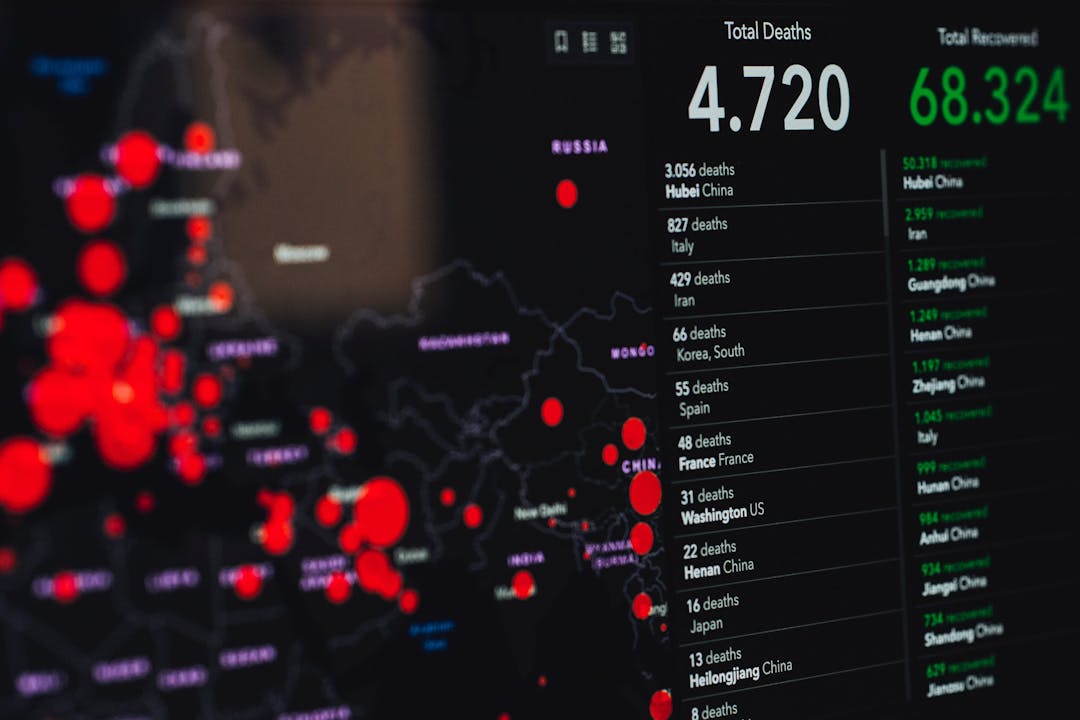15 Thriving Remote and Hybrid Jobs 1/3

Let's dive in!
The world of work is constantly evolving, and in this era, remote and hybrid work models have emerged as the game-changers. These models have revolutionised traditional work, and technological advancements such as communication tools and AI have opened up new opportunities for us. With their flexibility and convenience, remote and hybrid work models have become the go-to choice for many.
These arrangements offer unprecedented flexibility and opportunities but also present unique challenges. Particularly in Stockholm and surrounding regions, where the trend towards such work styles is gaining momentum, it's crucial to understand the dynamics of various professions in this context.
This article delves into 15 thriving jobs under remote and hybrid work models, examining their adaptability, advantages, and potential downsides. From software development to healthcare administration, we explore how these roles are reshaping in the face of digital transformation.
- Software Development
- Digital Marketing
- Graphic Design and Illustration
- Writing and Content Creation
- Data Analysis and Business Intelligence
- IT Support and Cybersecurity
- Consulting
- Customer Service
- Accounting and Finance
- Education and Training
- Project Management
- Human Resources
- Translation and Language Services
- Legal Services
- Healthcare Administration

Software Development
Software Development stands at the forefront of remote work adaptability. As a profession deeply entrenched in digital tools and collaborative platforms, software developers have seamlessly transitioned to working outside traditional office spaces.
Pros
- Flexibility: Developers can work from anywhere, provided they have a computer and internet access. This flexibility boosts productivity and work-life balance.
- Global Collaboration: Remote work allows developers to collaborate with international teams, bringing diverse perspectives and skills to projects.
- Cost-Effective: For employers, remote software development can reduce overhead costs related to physical office spaces.
Cons
- Communication Challenges: One of the challenges of remote work is the potential for communication gaps., especially in teams spread across different time zones.
- Overwork and Burnout: The blurred lines between home and work can lead to longer working hours and potential burnout.
- Security Risks: Working remotely can increase the risk of security breaches, especially if proper IT protocols are not in place.

Digital Marketing
Digital Marketing has found a natural fit in the remote and hybrid work environment. With the essence of the job rooted in online platforms, digital marketers have the unique advantage of executing strategies from virtually anywhere.
Pros
- Wider Reach and Insight: Remote work allows digital marketers to tap into a broader range of markets and consumer insights, as geographic constraints do not limit them.
- Flexibility in Creativity: Working from diverse locations can inspire innovative marketing ideas and strategies.
- Cost Savings: Reduced physical office space needs can lead to significant employer savings.
Cons
- Isolation from Teams: Remote work can sometimes create isolation, impacting teamwork and idea generation.
- Difficulties in Synchronizing: Coordinating campaigns across different time zones can be challenging.
- Over-reliance on Digital Communication: Without face-to-face interactions, nuances in communication can be lost, potentially impacting campaign effectiveness.

Graphic Design and Illustration
Graphic Design and Illustration are fields inherently suited to remote and hybrid work models. With creativity at their core, these professions thrive in environments that offer flexibility and personal space for inspiration.
Pros
- Creative Freedom: Working remotely allows designers and illustrators the liberty to create in environments that stimulate their creativity.
- Access to Global Clients: When working remotely, you can reach a global audience beyond physical borders and limitations.
- Reduced Overhead Costs: Freelancers and agencies can significantly reduce office-related expenses.
Cons
- Collaboration Challenges: Brainstorming and collaborating on visual concepts can be less dynamic and immediate when not done in person.
- Technology Dependency: High reliance on digital tools and internet connectivity can pose challenges, especially in areas with unstable internet.
- Work-Life Balance Issues: Designers may need help to separate work hours from personal time, leading to extended work periods.

Writing and Content Creation
Writing and content creation are domains where remote and hybrid work models are feasible and often preferred. This field, encompassing everything from technical writing to blogging, offers immense flexibility and independence.
Pros
- Flexibility in Work Environment: Writers can work from any location, allowing for a change of scenery that can spark creativity.
- Wider Audience Reach: Remote work enables writers to connect with a global audience and cater to diverse content needs.
- Reduced Commuting Stress: By eliminating daily commutes, writers can have more time to focus on their writing.
Cons
- Isolation: Working remotely can lead to solitude, affecting motivation and creativity.
- Distractions at Home: Maintaining productivity can be challenging, especially with household distractions.
- Inconsistent Workflow: Freelance writers may need to work on managing their workloads and income instability.

Data Analysis and Business Intelligence
Data Analysis and Business Intelligence are increasingly aligning with remote work models. These fields, centred around data interpretation and strategy development, can be effectively managed from anywhere with the right technology.
Pros
- Access to a Wide Talent Pool: The ability of remote work lies in the ability for companies to hire and collaborate with the most talented data analysts and BI experts without being limited by geography.
- Increased Productivity: Analysts often find they can focus better and produce more insightful work in a comfortable, personal environment.
- Cost Savings: For organisations, remote data teams mean reduced infrastructure and operational costs.
Cons
- Collaboration Challenges: Remote work can complicate synchronous collaboration, especially for complex data projects.
- Data Security Concerns: Data security and confidentiality in remote settings can be more challenging.
- Limited Networking Opportunities: Working remotely can restrict networking and mentorship opportunities often found in office settings.
To be continued...
